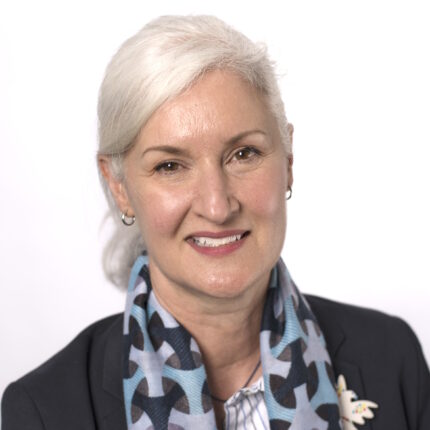Across the sector, we continue to see growth in attempts to implement data-led solutions to support improved student wellbeing, outcomes, and experience.
The creation of data dashboards helps bring together the diverse information we hold about our students, and enables us to share this with staff. Learner analytics approaches go further, and allow institutions to start using existing data to make predictions about future behaviour and support needs – such as targeting those at risk of non-continuation, or identifying when there might be concerns about student wellbeing.
At London South Bank University, as part of the implementation of a new customer relationship management (CRM) platform we have been developing our own approach to the use of student data. This has been a fascinating and transformational journey.
Our approach began at the level of an individual student, and reflected on the question of how we can ensure that students really could feel more seen, known, and understood by our organisation. Equally, we wanted to connect this insight back to the ways in which we help our students to develop, and support them in particular times of need – in such a way that students really would feel that when they share information with us, it genuinely informs what we do next. To turn this into reality, we involved students and staff in a co-creation project which led to the development of our Integrated Student Development Framework.
This framework takes a student-centred approach to thinking about how we organise and produce access to the wide range of development and support which we offer. Importantly, the framework has allowed us to shift significantly away from a reactive support-oriented model, towards a proactive and developmental approach.
In order to be proactive in this way, we realised that we needed to know more about our students than the typical demographic data which universities collect. In higher education, we rely heavily on different metrics to serve as proxies for disadvantage. For example, having been eligible for free school meals is associated with an increased risk of facing barriers to accessing and succeeding in higher education. But knowing that a student was eligible for free school meals does not actually tell you what specific barriers an individual student might face – to understand what students actually need, we have to ask them.
Get What You Need
Using insights from a piece of research originally led by our own colleagues, Zoe Leadley-Meade and Russell Goodwin, Rosie Holden developed a personalised, proactive and insight generating tool which is designed to help students reflect on their own academic and practical development needs over time. Students’ responses to the questions in the tool directly link them with the wide range of services and support available and provide deep understanding of student need, progress, and the impact of our interventions. Crucially, the tool not only focuses on academic development needs, but covers a broad range of developmental domains:
- Personal circumstances including caring responsibilities, finances, living arrangements
- Careers, employability and enterprise skills
- Digital and learning skills
- Independent living skills
- General study preparedness
- Organisation and study skills
- Wellbeing, resilience and emotional health
This tool, which we refer to as our Personal Development Plan (PDP), has allowed us to embed the integrated student development framework across our whole organisation. When students complete their personal development plan, in addition to seeing their own development profile, they are automatically assigned a list of tasks signposting them to services which will help them develop different skills and abilities.
In some cases, for example, if a student indicates significant concerns about their mental health, we will directly reach out to students to explore their particular needs, rather than waiting for the student to engage with us further. Since September 2022, responses to the personal development plan tool have allowed us to identify and provide targeted support to:
- 469 students with a disability they had not previously shared during the application and enrolment process.
- 212 students reported experience of care or estrangement they had not previously shared.
- 145 students reported that they were considering interrupting or withdrawing from their course and had not yet discussed this with anyone.
- 58 students responded to questions regarding their wellbeing in such a way that suggested they were experiencing significant distress.
Each of these cases relate to individual students who were potentially facing significant barriers that they had not previously shared – and, prior to the implementation of the personal development plan tool, may not have shared this information at all. The personal development plan tool allowed us to offer urgent support to students in acute need, as well as offer longer-term support to others.
We’ve also learned that over 25% of our students do not have a suitable space to study at home, and that around half of our students work more than 15 hours a week. These are crucial, individual-level insights that we use to frame the discussions and interactions we have with our students.
We encourage our students to complete the personal development plan on a regular basis. The tool can be completed in its entirety, or by specific sections. Thus, as a students’ development and support needs change over time, they can update their responses accordingly. Over time, the student is also able to track their responses, enabling us and them to reflect on their growth and development over the course of their studies. This is a key way that we hope that a student can be supported to reflect on their own needs and to consider how they can be met, given the range of relevant services on offer.
A student’s responses on the personal development plan are also immediately (and appropriately) available to all colleagues involved in supporting a student, enabling us to tailor our interactions. For example, personal tutors will review their tutees’ personal development plan responses prior to each meeting, which provides a useful shared context for discussions.

An example of a student development profile, based on their responses to the PDP tool
Through this approach, we have created an integrated model which allows students to share important information about their own development needs. This information allows us to tailor the information we share with students about the services and support we offer. This information is also used to help colleagues who are working with students to develop a better understanding of each individual student – beyond simple demographic or behavioural data.
Understanding students’ lives
The implementation of the integrated student development framework and the personal development plan has had a transformational impact on the way that we are able to understand the needs of our students. Not only have we made it easier for individual students to share this information with us, the approach has also given us the ability to understand the needs of our student body at the level of whole cohorts and groups. In this we feel that we have learned a great deal from much of the previous national work on learning gain.
We also see our approach being a key foundation of our institutional approach to ensuring that our students feel a sense of belonging to their institution. With reference to the four pillars identified in Wonkhe and Pearson’s research on student belonging, our approach is designed around embedding support and giving our students the autonomy to share important information, and access the services, resources, and support we offer, at the time they need it.
An additional benefit to this approach is that the insight we are generating about our student body at no point asks students to invest time and effort into anything that is not to their personal benefit. We are asking questions which relate to meaningful, practical development and support needs, and empowering students to reflect on their own needs – not trying to draw inferences from algorithms and other proxies for the barriers which actually impede a student accessing and succeeding in their education.
The authors are grateful for the support of Lal Tawney, Steve Clarke, and their colleagues from Whitecap Consulting in the development of the Integrated Student Development Framework, and to colleagues at PWC for their support implementing the ISDF as part of a wider transformation programme. The authors would also like to credit Rosie Holden, formerly director of student services at London South Bank University as co-author of this article.














